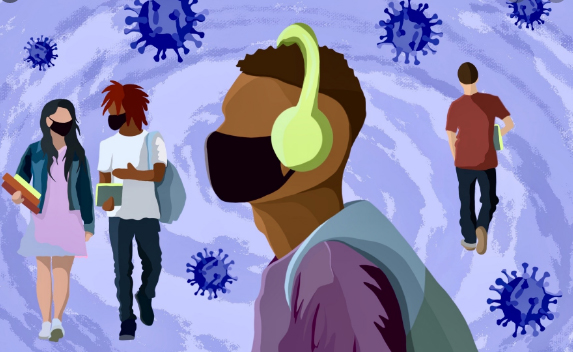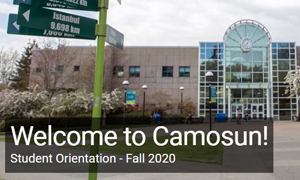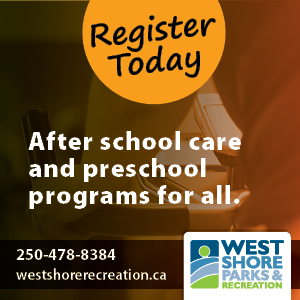Saturday September 5, 2020 ~ VICTORIA, BC
Mary P Brooke, editor ~ Island Social Trends
As the new academic year fast approaches, Camosun College is getting ready to welcome thousands of new and returning students online and, in some cases, on campus this fall.
With the new semester starting on Tuesday September 8, Camosun’s domestic student enrolments numbers are up a little over last year over throughout its 160 academic, trades and technical programs, while international student numbers are down due in part to the restrictions that limit travel to Canada.
“Throughout the COVID-19 pandemic the college has continued to ensure education, services and supports remained available for students,” says Camosun President Sherri Bell.
“While we are delivering courses online as much as possible, as an applied learning institution, much of what we do requires hands-on learning or access to specialized equipment. If you’re training to be a carpenter or medical radiography technologist, you can’t do it all online, but you can do portions of it,” said Bell in a news release ahead of the long weekend.
Masks when on campus:
As posted September 2 in the COVID section of the Camosun website, the use of masks is strongly recommended when on campus:

“To support the health and safety of students and employees, it is strongly recommended that everyone wear a non-medical mask in indoor public spaces while on campus. Public spaces include building entryways, washrooms, hallways, stairwells and other high-traffic areas where physical distancing cannot be consistently maintained.”
Supporting students in need:
Over the last few months Camosun faculty, staff, donors, Student Society and other stakeholders have stepped up to support students and the broader community in many ways. With the financial contributions of the Camosun College Student Society, Camosun Foundation donors, and the Ministry of Advanced Education, Skills and Training, over $260,000 in emergency bursary funds were raised to assist more than 1,100 students in need.
The Camosun Innovates applied research team developed thousands of face shields and an innovative new UV decontamination oven to help local hospitals and Island Health organizations. The Camosun Library and Information Technology Services teams worked together to provide 150 loaner laptops and, in partnership with Shaw Communications, to provide 200 WIFI devices to students needing access to technology.
Camosun has a daily online Orientation chat service, providing students with one-on-one information and advice on how to access all of the college’s online services and resources, and how they can prepare themselves for the semester start.
Support services at Camosun:
All of Camosun’s support services are available online to help students, whatever their need, including: registration, financial aid, academic advising, student clubs, online learning help, and much more. The Camosun Libraries are open virtually and are also planning limited in-person computer stations and take-away services for books and materials later in September. Students can go to: camosun.ca/library or camosun.ca/services to find out more.
For those still looking to pick up some individual online classes, seats are still available in a few courses this fall, including accounting, economics, English, math, art, biology, marketing and music.
Campus footprint:
Camosun College ha two campuses in the Greater Victoria area — Lansdowne and Interurban. It’s one of the largest colleges in British Columbia with campuses on the Traditional Territories of the Lekwungen and W̱SÁNEĆ peoples. Established in 1971, the college serves over 19,000 learners a year in certificate, diploma, bachelor’s degree, and post-degree diploma programs.





